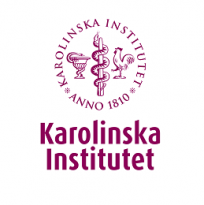About
Karolinska Institute (KI) was founded by King Karl XIII in 1810 as an "academy for the training of skilled army surgeons". Today, Karolinska Institutet is a modern medical university and one of the foremost in the world and accounts for 6,456 full-time students. The vision of the university is to advance knowledge about life and strive towards better health for all. Karolinska Institutet accounts for the single largest share of all academic medical research conducted in Sweden and offers the country’s broadest range of education in medicine and health sciences.
KI offers a wide range of programmes and courses in medicine and healthcare to meet society’s need for skills in the field. This enables the university to conduct high-quality, relevant interprofessional education and training, through which students from different programmes learn with, from and about each other in the interests of effective collaboration as students and, later, as healthcare professionals. Karolinska Institutet conducts research and education on two campuses (Solna and Flemingsberg) and at a number of the county’s hospitals.
Sustainability at Karolinska Institute
KI is firmly committed to sustainability: it embeds environmental stewardship, social equity, and global responsibility across its research, teaching, campus life, and community partnerships. Through interdisciplinary research into health, environment, epidemiology, and social sustainability, KI advances knowledge that aligns with the UN Sustainable Development Goals. Its curricula ensure all students engage with themes like planetary health, justice, and sustainable healthcare while campus operations and policies are geared toward reducing climate impact, fostering inclusion, and building socially and ecologically resilient spaces. KI’s vision under Strategy 2030 is to promote better health for all generations within sustainable bounds.
More Information
Find out more about the university's role on the SDGs: Environment and sustainability work.




